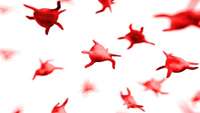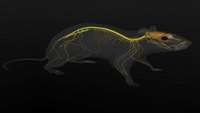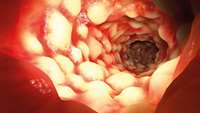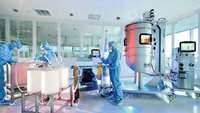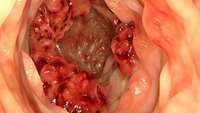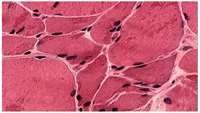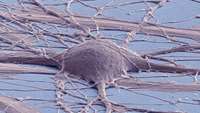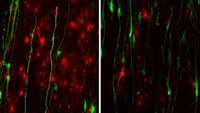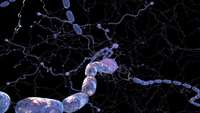Blood transfusions with iPS cells OK’d by Japanese health ministry
The government has given the green light to using blood transfusions including platelets created from artificially derived stem cells to treat patients with intractable diseases.
Detailed atlas of the nervous system
Researchers at Karolinska Institutet have created a systematic and detailed map of the cell types of the mouse nervous system. The map, which can provide new clues about the origin of neurological diseases, is presented in the journal Cell.
Gene therapy: Better adenine base editing system
The human gene is composed of the bases Adenine (A), Thymine (T), Cytosine (C) and Guanine (G), which are arranged in a particular order to encode genetic information.
Stem cell transplants to be used in treating Crohns disease
A clinical trial has begun which will use stem cell transplants to grow a new immune system for people with untreatable Crohns disease—a painful and chronic intestinal disease which affects at least 115,000 people in the UK.
Amicus Therapeutics Acquires Gene Therapy Portfolio of Ten Clinical and Pre-Clinical Stage AAV Programs in Neurologic Lysosomal Storage Disorders
Amicus Therapeutics (Nasdaq: FOLD) today announced the signing of a definitive agreement in which Amicus Therapeutics will receive worldwide development and commercial rights for ten gene therapy programs developed at The Center for Gene Therapy at The Research Institute at Nationwide Children’s Hospital and The Ohio State University.
Newly identified stem cells may hold clues to colon cancer
Vanderbilt-Ingram Cancer Center researchers have identified a new population of intestinal stem cells that may hold clues to the origin of colorectal cancer.
Amish nemaline myopathy natural history study finds promise for gene therapy treatment
A new comprehensive natural history study about Amish nemaline myopathy (ANM) in the Old Order Amish population focuses on the promise of gene therapy for this lethal disorder.
creation spinal cord neural stem cells (NSCs) from human pluripotent stem cells (hPSCs)
The achievement, described in the August 6 online issue of Nature Methods, advances not only basic research like biomedical applications of in vitro disease modeling, but may constitute an improved, clinically translatable cell source for replacement strategies in spinal cord injuries and disorders.
Role of Astrocytes in Alexander Disease Revealed
City of Hope researchers have developed a stem cell model to assess possible treatments for a rare nervous system disorder that is in the same disease group as Alzheimer’s disease, Parkinson’s disease and amyotrophic lateral sclerosis (ALS).
Scientists uncover the role of a protein in production and survival of myelin-forming cells
The nervous system is a complex organ that relies on a variety of biological players to ensure daily function of the human body. Myelin—a membrane produced by specialized glial cells—plays a critical role in protecting the fibers that help carry messages throughout the body.


